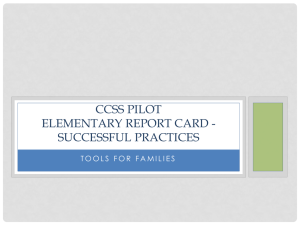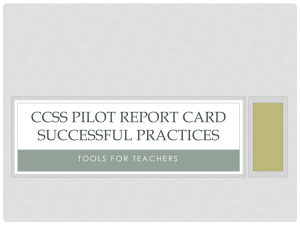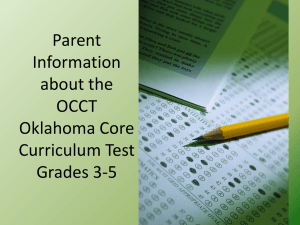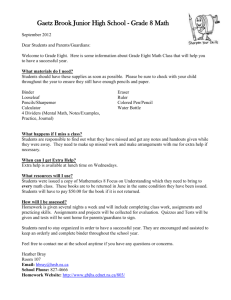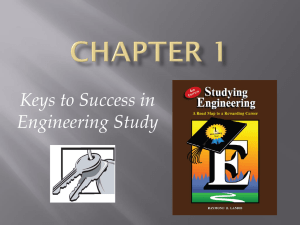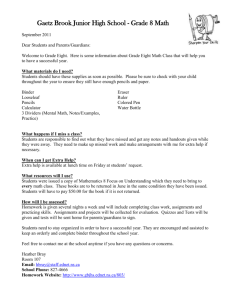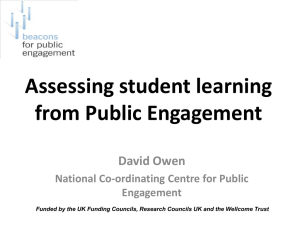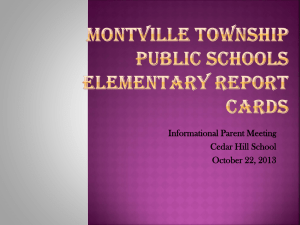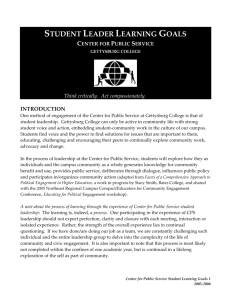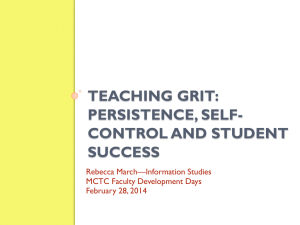Successful Practices for Parents - San Juan Unified School District
advertisement
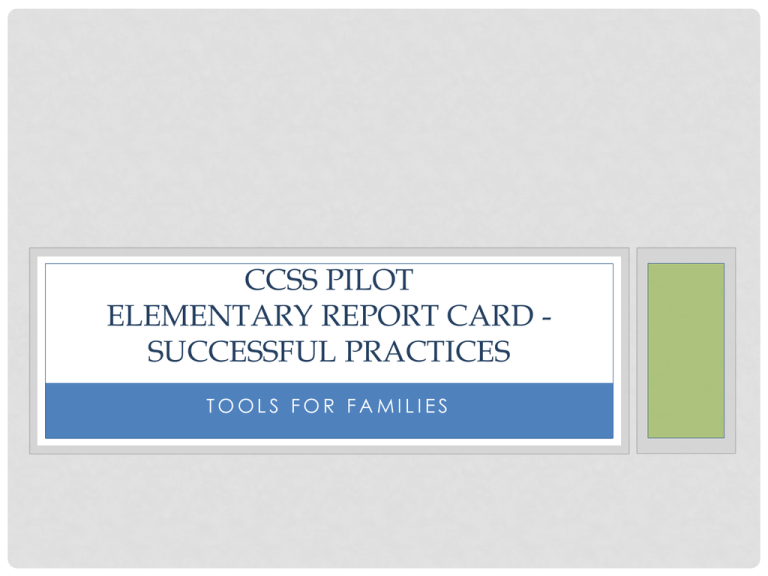
CCSS PILOT ELEMENTARY REPORT CARD SUCCESSFUL PRACTICES TOOLS FOR FAMILIES WHAT ARE THE PRACTICES? • Demonstrates grit/perseverance • Exhibits a growth mindset • Demonstrate gratitude • Demonstrates curiosity • Constructively collaborates • Demonstrates self discipline – Interpersonal skills • Demonstrates self discipline – Class work & Homework WHY FOCUS ON PRACTICES? Research has proven: • IQ is not static, nor a predictor of future success • Over time, optimism, curiosity, self control and grit have been shown to be important qualities to lifelong learning and success in the workplace • The ability to persevere through academic challenges, translates to a thirst for greater knowledge and the ability face challenges in life. GRIT • Tries hard even after experiencing failure • Stays committed to goals and projects (long term) • Keeps working hard even when s/he feels like giving up • Stays committed to work until it is completed CURIOSITY • Is excited to discover and explore new concepts or things • Asks questions that help him/her improve learning • Is interested in learning new things • Seeks to understand concepts GROWTH MINDSET • Demonstrates belief that effort is essential for success • Stays motivated, even when things are challenging • Demonstrates belief that s/he can improve in areas that are difficult CONSTRUCTIVELY COLLABORATES • Is able to find solutions when disagreements arise • Demonstrates that s/he cares about the feelings of others • Adapts to different groups and situations GRATITUDE • Is aware of what other people have done for him/her • Expresses appreciation (e.g. says “Thank you”) • Reciprocates by doing something nice for someone else DEMONSTRATES SELF DISCIPLINE – CLASS WORK AND HOMEWORK • Comes to school/class prepared • Remembers and follows directions • Gets to work immediately • Stays focused and is able to resist distractions DEMONSTRATES SELF DISCIPLINE INTERPERSONAL • Remains calm even when provoked by others • Is courteous to adults and peers • Allows others to speak without interrupting MARKING SCALE WHAT DOES IT MEAN? This is a growth model looking at each student as an individual. Students may vary in these descriptions based on what’s going on in their lives. • Almost Always: Very likely to exhibit this behavior • Often: Likely to exhibit this behavior • Sometimes: Less likely to exhibit this behavior • Rarely: Not likely to exhibit this behavior WHAT DOES THIS MEAN FOR SPECIAL STUDENT POPULATIONS? English Language Learners and Refugees • Consider students’ unique language and cultural customs. • Traumatic incidents in the child’s life may impact their ability to persevere and handle frustration. As student heals from trauma, improvement should be seen in use of successful practices. • The teacher measures the student against him/herself, not the rest of the class. WHAT DOES THIS MEAN FOR SPECIAL STUDENT POPULATIONS? For Students with Special Needs (Special Education or 504 plan), teachers will determine mark based on: • Diagnosed conditions ad accommodations outlined in the IEP or 504 plan. • Consider any related IEP goal areas for the student. • Consult with the student’s case manager. • Measure the student against him/herself, not the rest of the class. HOW DO I USE SUCCESSFUL PRACTICES AT HOME? Avoid labels and give growth-mindset praise • Don’t label yourself in ways that model a “fixed mindset” (e.g., I’m a terrible cook….I was never good at math.”) Shift your child’s attention to the process that led to outcome. (i.e., cause and effect) • Praise and value effort, practice, self-correction, and persistence. • Don’t shelter your child from a failed task. Ask “What can you learn from this experience? What could you try differently the next time?” Get curious about your child’s work through questioning • • • • • How did you figure that out? What’s another way you could have done that? How many times did you try before it turned out that way? What here was challenging and how did you figure it out? What do you plan to do next time? TIPS FOR PARENTS CONT. Help children get curious about mistakes. • Help them reframe a mistake as new information or as a step in the process of learning. Help children talk back to negative self-talk with phrases like: • I am willing to learn new skills to improve, and I know it will be hard at times. • I get better and better with practice, this is hard, but will get easier. • Practice makes permanent. Model a growth-mindset • At dinner: Tell your child about a time when you didn’t know the answer to a recent question. Who did you ask for help? How did you learn the answer? Source: www.gotocoffeebreak.com/ RESOURCES Online Resources “The Key to Success: Grit” by Angela Duckworth http://www.ted.com/talks/angela_lee_duckworth_th e_key_to_success_grit?language=en# Books • How Children Succeed, by Paul Tough • Choice Words, by Peter Johnston • Opening Minds, by Peter Johnston • Mindset, by Carol Dweck
